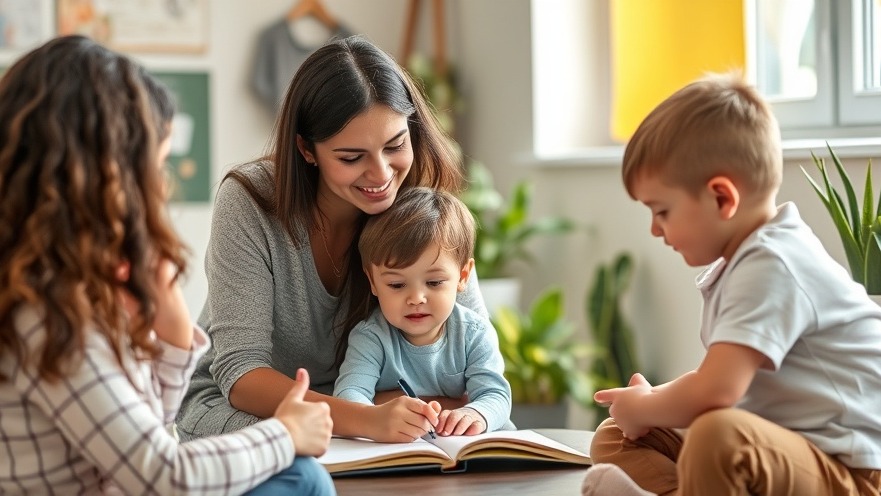
Understanding Secure Attachment in Parenting
Secure attachment refers to the strong emotional bonds that develop between parents and children. This critical element of child development lays the foundation for emotional well-being, offering children the confidence and resilience needed throughout life. In the video titled "LIVE: Parenting for Secure Attachment: Following Good Orderly Direction," the importance of a structured approach towards parenting was emphasized, detailing practical strategies to cultivate security in children.
In 'LIVE: Parenting for Secure Attachment: Following Good Orderly Direction,' we explore the dynamics of secure attachment and delve into the impactful techniques that support mental and emotional health across all ages.
The Role of a Good Orderly Direction in Parenting
A good orderly direction involves guiding children in a consistent, nurturing manner. This directed approach helps foster self-discipline and emotional insight in children. It’s suggested that parents who establish clear rules and expectations can significantly reduce anxiety and promote safety in their children. By following structured routines, parents not only model behavior but also create a predictable environment that enhances emotional security.
Why Secure Attachment is Essential for Mental Health
Secure attachment theory is not merely a concept but a foundational pillar for mental health. Research indicates that individuals with secure attachments in childhood are less likely to experience anxiety, depression, and other mental health issues later in life. For middle-aged and senior individuals, revisiting their attachment styles may unlock echoes of past parenting experiences and open avenues for healing. This understanding allows one to employ mental health techniques such as mindfulness, meditation, and breathing exercises that are essential for maintaining emotional balance.
Natural Remedies for Stress and Anxiety
Incorporating mental health natural remedies can have profound effects on stress relief. Techniques such as breathing exercises and meditation can significantly alleviate anxiety and depression symptoms. As our community navigates the complexities of life, simple practices like daily mindfulness exercises can foster a sense of calm. Intentionally practicing these techniques can transform anxiety into resilience.
Enhancing Mental Wellness Through Routine
Establishing a mental health routine is crucial for both physical and mental well-being. For seniors, integrating practices like sleep hygiene, relaxation, and self-care can lead to a higher quality of life. Engaging in regular sleep exercises and adopting a structured sleep routine can mitigate insomnia problems, ensuring restful nights and rejuvenated days ahead. This holistic approach represents not just a physical routine but a mental health habit that can enhance longevity and well-being.
The Importance of Self-Care Techniques
Self-care is often overlooked, yet it plays a pivotal role in mental wellness. Engaging in activities that promote relaxation and mental health, such as nature walks or engaging in creative hobbies, provides essential stress relief. As part of a routine, self-care can empower individuals to take charge of their mental state. Utilizing self-care techniques serves as a buffer against the trials of aging and societal pressures, ultimately leading to improved mental health.
Conclusion: The Ripple Effect of Secure Parenting
Understanding the principles behind secure attachment and implementing effective parenting strategies is not just beneficial for children—it's an investment in the mental health of society. The video "LIVE: Parenting for Secure Attachment" offers valuable insights, and following these practices can foster a community of emotionally resilient individuals. By prioritizing secure relationships, mental well-being, and self-care routines, we can navigate the challenges of mental health triumphantly, ensuring a brighter future for all generations.
 Add Element
Add Element  Add Row
Add Row 



 Add Row
Add Row  Add
Add 


Write A Comment